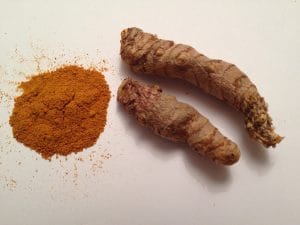Abdominal Cramping, Bloating, Flatulence, Constipation, and Diarrhoea
Since we often see clients who have abdominal cramps along with either bloating, constipation, diarrhoea or flatulence, we thought we’d look at the connection between abdominal cramps and these types of digestive issues.
We’ll start by looking at your stomach which is one of the hardest working systems in your body.
The action of your stomach is to digest food and extract nutrients to sustain you.
However, if something disturbs this, digestive symptoms such as those mentioned above can result.
While many of these are normal, others may indicate something more serious.
Understanding these symptoms and their implications is important for maintaining overall wellness.

Normal, Everyday Symptoms:Transient Belly Bloating
Occasional bloating, which is a sensation of fullness or swelling in the abdomen can result from dietary changes or larger meal portions, leading to trapped gas. Chewing food thoroughly, having smaller meals, and aiming for a moderate carbohydrate and fibre intake can help reduce bloating.
Flatulence
Passing gas is normal, and is influenced by diet and gut bacteria. Moderating intake of certain foods, particularly, refined processed foods can reduce flatulence.

Symptoms That Require Attention:Chronic Constipation
Infrequent bowel movements and difficulty passing stools often accompanied by discomfort, may indicate insufficient fibre intake or dysbiosis (an imbalance in the types and levels of gut bacteria).
Additionally, chronic constipation is associated with irritable bowel syndrome (IBS), a condition that affects the function of the bowel.
Increasing fibre-rich foods, including fruit and vegetables, and drink enough water, as well as prebiotic and probiotic supplements can aid in relieving constipation.
Diarrhoea
Frequent, loose or watery stools that occurs more than three times daily may mean infection or conditions like irritable bowel syndrome (IBS) or inflammatory bowel disease (IBD).
Seeking professional diagnosis and treatment is required for managing these conditions.
However, if your symptoms are associated with antibiotic use, we supply Metagenics Ultra Flora Intensive Care, which may help to restore healthy intestinal bacteria and relieve diarrhoea.
Malodorous Gas
Imbalances in gut bacteria can lead to smelly gas. Probiotic supplements containing specific strains may help restore a healthy balance.

Abdominal Cramps or Pain
Sharp, dull, stabbing, cramp-like, or twisting pain in your abdomen.
Different types of abdominal pain can have various causes, the most common being gas pain, food intolerances or allergies, or indigestion. Abdominal pain can also be a sign of something more serious, including appendicitis, gallstones, ulcers, infections, kidney stones. Persistent or severe abdominal pain needs to be addressed by a healthcare professional.
The Connection Between Abdominal Cramps and Digestive Symptoms
Abdominal Cramps often occurs together with one of these: Bloating, Constipation, Diarrhoea, or Flatulence.
Abdominal Cramps and Bloating: Bloating, characterised by abdominal swelling, often accompanies abdominal cramps due to trapped gas in the digestive system. Dietary choices and underlying digestive issues can contribute to both symptoms.
Abdominal Cramps and Constipation: Infrequent bowel movements and difficulty passing stools are common issues associated with abdominal cramps. Insufficient fibre intake and poor bowel habits can exacerbate both constipation and cramping.
Abdominal Cramps and Diarrhoea: Loose stools and frequent bowel movements often coincide with abdominal cramps, indicating disturbances in the digestive system. Infections, dietary triggers, and gastrointestinal conditions can contribute to both symptoms.
Abdominal Cramps and Flatulence: Excessive gas production and abdominal cramps can occur due to imbalances in gut bacteria and dietary factors. Managing flatulence often involves dietary modifications and addressing underlying gut health issues.
Identifying Common Causes and Effective Management Strategies
As mentioned above, several factors contribute to the development of abdominal cramps, bloating, constipation, diarrhoea, and flatulence.
Dietary triggers such as high-fat foods, food intolerances, and excessive consumption of gas-producing foods can aggravate digestive discomfort.
Additionally, lifestyle factors like stress, inadequate hydration, and sedentary habits can impact digestive function and contribute to cramping.
The Impact of Gut Health:
Maintaining a healthy gut microbiome is important for digestive health and overall well-being. Imbalances in gut bacteria, known as dysbiosis, can disrupt digestive processes and contribute to symptoms like abdominal cramps, bloating, constipation, and diarrhoea.
Supporting gut health with probiotics, prebiotics, and dietary modifications can help restore balance and reduce symptoms.
Managing abdominal cramps and their associated symptoms requires an approach tailored to individual needs.
Dietary modifications, such as increasing fibre intake, staying hydrated, and avoiding trigger foods, can help alleviate digestive discomfort.
Probiotic supplements, digestive enzymes, and lifestyle changes like stress management and regular exercise can also support digestive health and reduce cramping.
Seeking Professional Guidance
Persistent or severe symptoms accompanied by other warning signs need professional treatment. Diagnostic tests can help identify underlying causes and lead to appropriate treatment options, ensuring personalised care for individuals experiencing digestive discomfort.
Conclusion
Understanding the connection between abdominal cramps and digestive symptoms is crucial for effective management and overall gut health. By addressing dietary, lifestyle, and gut health factors, individuals can alleviate symptoms and improve their quality of life.
Remember to consult a healthcare practitioner at Your Wellness Centre for personalised professional guidance and optimal digestive wellness.
If you regularly experience one or more problematic symptoms, particularly if they’re new or getting worse, consult with a Natural Health Practitioner at Your Wellness Centre for further investigation to devise an individualized comprehensive plan of attack that is suitable for you.
Our healthcare practitioners have a suite of testing available to investigate the driver behind your symptoms.
A stool analysis test enables us to identify all of the bacteria and other microorganisms that inhabit your gut and how they contribute to your gut function and digestive symptoms.
You can read more about MetaBiome™ testing here.


 However, not all inflammation has a visible injury. For example,
However, not all inflammation has a visible injury. For example,  Turmeric – this traditional anti-inflammatory Ayurvedic herb
Turmeric – this traditional anti-inflammatory Ayurvedic herb 
 Is poorly managed pain and inflammation slowing you down and impairing your quality of life? The feeling of pain is your body’s way of telling you that there is inflammation present.
Is poorly managed pain and inflammation slowing you down and impairing your quality of life? The feeling of pain is your body’s way of telling you that there is inflammation present. Eat a diet plentiful in fresh fruit, a variety of vegetables and good fats from fish and nuts.
Eat a diet plentiful in fresh fruit, a variety of vegetables and good fats from fish and nuts.